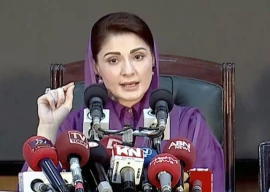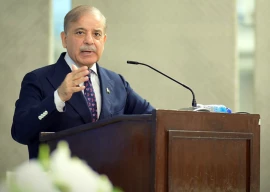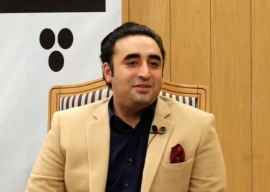
Pakistan inherited a rich cultural heritage that belonged not just to the Muslims but people of all faiths who have inhabited this land over the centuries.
Some of the cultural traditions and celebrations of non-Muslim communities, often suppressed or ignored in the mainstream Pakistani narrative, still continue to thrive and have been rediscovered in a new book by researcher Haroon Khalid.
Khalid read from his book, “A White Trail: A Journey into the Heart of Pakistan’s Religious Minorities” at a session in Islamabad on Monday. The reading session was organised by the Asian Study Group and was moderated by Nilofer Afridi Qazi.
The book is based on Khalid’s research, which was financially supported by the Citizens Archive of Pakistan’s Minority Project.
The book’s title alludes to the white portion of the Pakistani flag that represents the country’s non-Muslim citizens.
In the book, which is mostly limited to Punjab, Khalid covers the festivals of Hindu, Christian, Baha’i, Sikh and Zoroastrian faiths.
The book essentially tries to capture the religious and cultural history of the festivals of religious minorities in Pakistan, but the chapters also touch upon the socioeconomic and political conditions faced by the non-Muslim communities.
In a way, Khalid’s book senses the way a monolithic Islamic culture has pushed the pluralistic multicultural heritage of Punjab to a corner. In the book’s introduction, the writer mentions that Pakistani historiography either discards Hindu and Sikh narratives or mentions them negatively.
Distinctions between different religions in India became prominent after the British arrived but these distinctions became even more rigid after Independence because of the Two-Nation theory, according to Khalid. Yet, he said, there are celebrations such as Vesakhi at Ram Thamman, where Muslims share the cultural celebrations with non-Muslims.
He said during his study, he experienced firsthand some of the discrimination Muslims in Pakistan accord to non-Muslims, especially giving them food or drinks in separate utensils. Khalid also mentioned that at times he faced some resistance from his non-Muslim subjects and had to win their trust in order to get their interviews. He said security has also become a significant issue for Pakistani non-Muslims, especially in the context of Muslims visiting their places of worship.
Khalid said that he observed that class plays an important role among Pakistani religious minorities but the traditional caste system ceased to exist in the religious minorities after Partition.
The writer read three separate passages from the book at the session. The first passage, based around a visit to a Good Friday ceremony at the Sacred Heart Cathedral in Lahore, recounted an account of the life of Bishop John Joseph, who shot himself outside a Sahiwal civil court in 1998 in protest against the country’s blasphemy laws.
Khalid’s poignant narrative ended with the harsh realisation that Joseph’s sacrifice changed nothing for Pakistani Christians, who are often trapped in false blasphemy charges.
In other passages, he narrated the history of the Sikh temples at Nankana Sahib and gave a glimpse into the life and celebrations of the Baha’i faith.
Responding to a question, Khalid said that the reasons for non-Muslims not leaving Pakistan despite persecution or lack of protection can be diverse and might differ from person to person.
Published in The Express Tribune, February 18th, 2014.
COMMENTS (1)
Comments are moderated and generally will be posted if they are on-topic and not abusive.
For more information, please see our Comments FAQ

1731439606-0/Trump-(3)1731439606-0-165x106.webp)














As the author alludes, Pakistan past pluralistic culture has non-Islamic origin. Since independence the country has tried it's best to get rid of anything non-islamic. There is no hope for any form of plurality to return to Pakistan. Take for example one of your most famous cricketer, who is well traveled and well respected all over the world has to tell his countrymen that his new found foreign wife has converted to Islam.